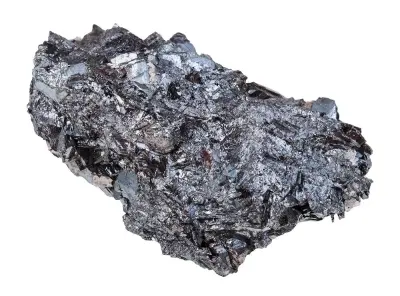To be successful in international markets, you must pay attention to cultural and linguistic differences and establish strong and reliable relationships with foreign customers

In the global market, competition between companies and producers of Hematite is very high. To attract foreign customers, you must consider competition with competitors and offer suitable programs to differentiate from them. Each country may have different standards and regulations for importing hematite. You must ensure that your products comply with these standards and obtain the necessary licenses and certificates. International shipping of hematite may face challenges such as shipping costs, proper shipping methods, proper packaging, and compliance with shipping laws. You should pay attention to these issues and adopt appropriate solutions.
When dealing with foreign customers, cultural and language differences can become a challenge. To be successful in international markets, you must pay attention to cultural and linguistic differences and establish strong and reliable relationships with foreign customers. Exchange rate changes can have a significant impact on pricing and international trade. You must be careful in exchange and currency risk management so that you can control its effects. In international business, you may encounter problems with payments and financial issues. To reduce risk, you should define payment terms and conditions with foreign customers and use secure payment systems.
Changes in policies, laws and regulations may affect your hematite export. Political changes, sanctions, increased or decreased tariffs, and changes in international trade laws can affect your export market. You should monitor these changes and make necessary updates regularly. Logistical problems can have a significant impact on hematite exports. This includes issues related to shipping, customs, terminals and delivery times. You should be familiar with these issues and adopt appropriate solutions to improve logistics performance. To export and market hematite internationally, you can follow the steps below:
- Market research, investigation of target markets and their demand regarding hematite. You can use research methods such as reading market reports, competitive analysis and interviewing experts. Knowing your competitors and analyzing your strengths and weaknesses compared to them. Determining the needs and problems of foreign customers and complying with international standards.
- Production and quality, make sure your product meets the international standards related to hematite. Improving processes and production quality in order to satisfy customers.
- Certifications and Standards Make sure you have the necessary licenses and certifications to export. Compliance with international standards related to environment, quality, health and safety.
- Packaging and transportation, choosing the right packaging for transporting hematite to the destination. Compliance with international transportation rules and regulations.
- Marketing and advertising, website design and virtual brochures in different languages. Participation in international industrial exhibitions and events. Use of social media and online advertising. Communicating continuously with international customers through email, phone calls and virtual meetings.
- Economicization, determining the right price for hematite products according to competitors, market and production and export costs. Checking financial conditions and payments with foreign customers.
- Cooperation with agents and wholesalers, communicating with local agents and wholesalers in target markets. Signing distribution and sales contracts with reputable agents.
- Solving problems, handling complaints and needs of foreign customers quickly and efficiently. Providing after-sales service and continuous support to customers.
- Public relations, building and maintaining strong and reliable relationships with external customers and business partners. Compliance with international business rules and ethics.
- Follow-up and evaluation, follow-up of orders and timely delivery of products to foreign customers. Continually evaluating export and international marketing performance and improving it through customer feedback and market analysis.
China is considered as the largest producer and consumer of iron ore in the world. The large market and booming construction industry, automobile industry and Steel production in China have created a significant demand for iron ore. Also, to meet its needs in the construction industry and steel production, China also imports iron ore. India, being the second largest iron ore producer and consumer in the world, provides a large market for iron ore exports. India's large steel industry and its growing need for iron ore have made this country one of the attractive markets for iron ore producers.
Japan, with its strong dependence on the import of mineral resources, including iron ore, is considered as one of the important target markets for iron ore exports. The automotive, electronics and construction industries in Japan have a significant need for iron ore. With its large steel production and strong automotive industry, South Korea is a good target market for iron ore exports. This country depends on the import of iron ore to meet its needs in the steel and automobile industry. Germany, with its large steel industry and advanced machinery production, is an important market for iron ore exports. The high demand for iron ore in the steel industry and machinery production makes Germany one of the attractive markets for iron ore producers.
In each country, there are specific export laws and regulations. Therefore, it is better to coordinate with the relevant authorities and get the necessary guidance before taking any action. Changes in demand, competitive advantage and customer needs in target markets may lead to changes in your export pattern. You must adapt your marketing to market changes and customer needs. In some regions of the world, security issues and political stability may have an impact on hematite exports. You should consider these issues and take appropriate security measures if necessary. International marketing and export of hematite needs attention and design of appropriate strategies. Knowing the challenges of international marketing and using appropriate solutions can help you grow and succeed in this field.





